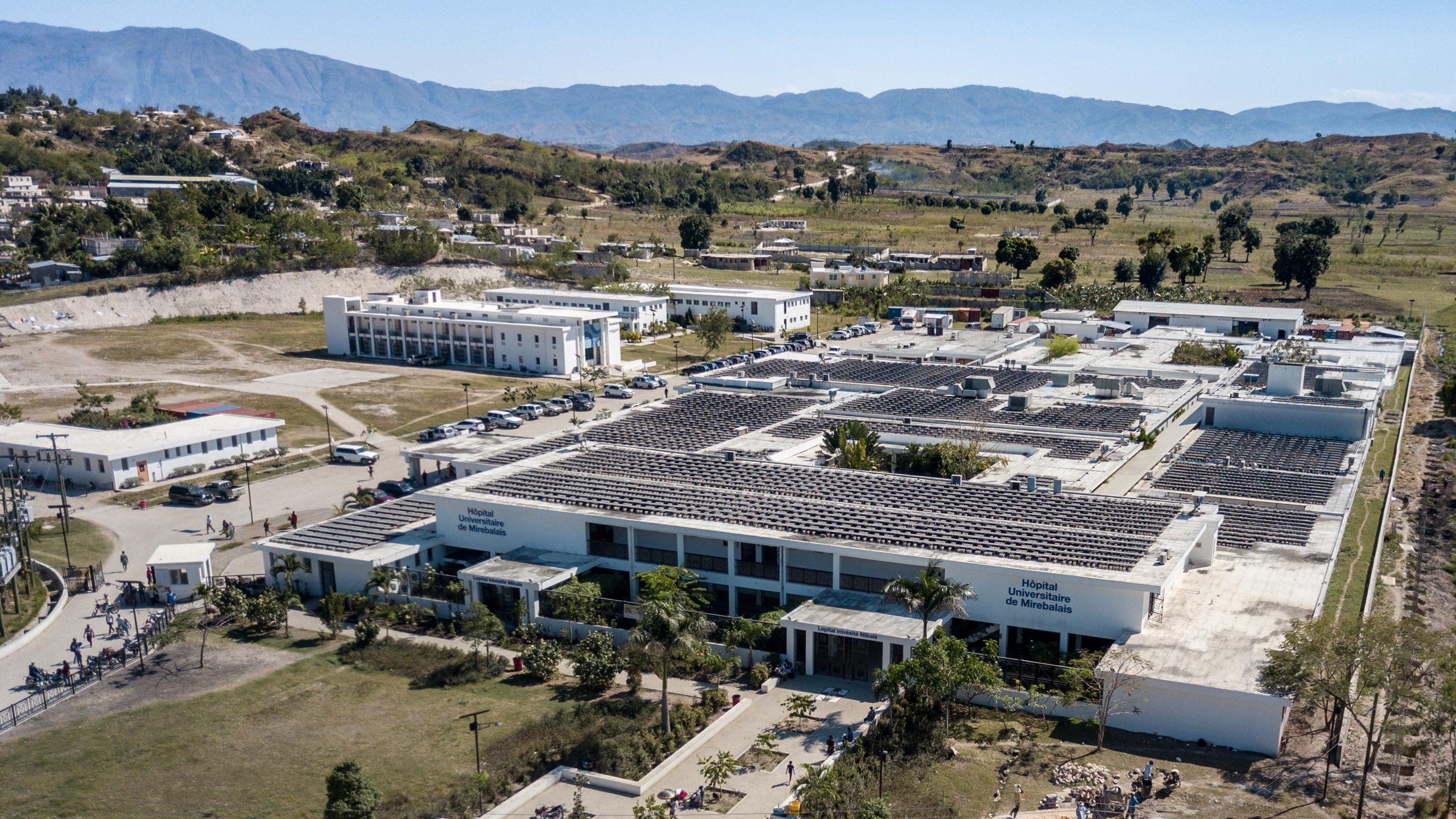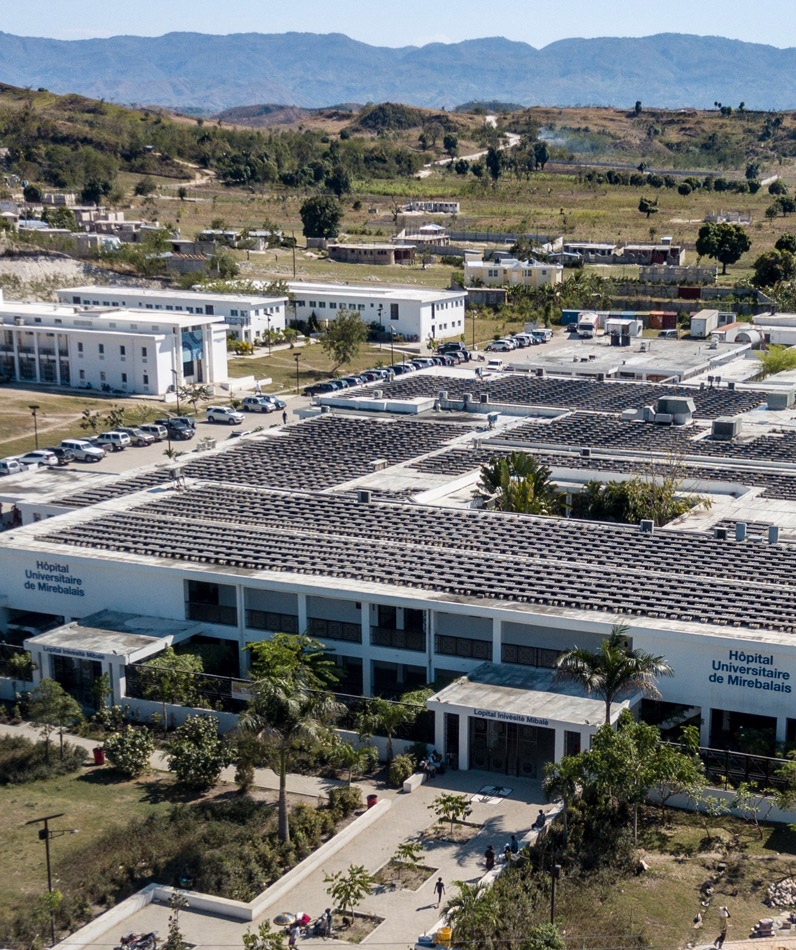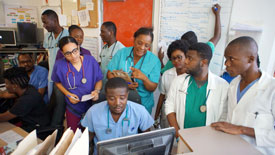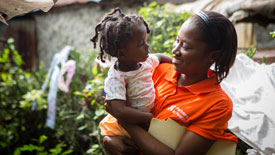Sustaining the Future
Learning from decades of work in Haiti, PIH Co-founder Dr. Paul Farmer coined the “five S’s” necessary for good health care: staff, stuff, space, systems, and social support. The middle three S’s form the strong backbone of a health system: having the right medications, supplies, and equipment on hand for clinicians to diagnose and treat patients; maintaining the functionality and dignity of hospitals and clinics, from their waiting rooms to their operating theaters; and developing the tools and procedures to allow care delivery to run smoothly, from how patients are triaged to how their medical records are stored.
All of these infrastructural elements are interlocking, and in Haiti, unjustly, none of them are a given. Take electricity as an example: Less than half of Haiti’s population has access to electricity, and in Mirebalais, at the time of the building of University Hospital, the area’s power went out for an average of three hours a day. Unreliable electricity poses an enormous challenge to running any health facility–surgeries are jeopardized; neonatal ventilators stall; medications aren’t temperature-controlled; and the phones and laptops necessary to schedule procedures, order supplies, and record patient outcomes run out of power.
In the face of such scarcity, Zanmi Lasante has spent decades investing in the stuff, space, and systems that enable quality patient care. Our facility-based investments in sustainable infrastructure include:
- Electricity at all 17 health facilities
- Solar power at University Hospital in Mirebalais which saves nearly $400,000 in electricity costs annually
- Custom supply chain software for the easy purchase and inventory tracking of medications and supplies
- Custom electronic medical records system, so clinicians can record and store patient medical histories across departments and facilities
- Advanced medical and diagnostic technology such as University Hospital’s Level-3 biosafety lab
- Wards regularly evaluated and expanded based on patient volume—for example, a recently expanded maternity ward at Saint-Michel Health Center in Boucan Carré
- Mosaics, murals, ironwork, and courtyards to provide beautiful, dignified spaces for clinicians to work and patients to heal
Durable, sustainable infrastructure—from physical buildings to data systems—supports each of the 1.3 million (and counting) people we serve. But crises are mounting to make progress harder: from global supply chain challenges related to COVID-19, to rising fuel prices, to worsening climate change and an increase in the frequency and intensity of “natural” disasters that can in an instant destroy crucial health infrastructure. In the face of these threats—and given the continual increase we see in patients seeking care from Zanmi Lasante—we remain as committed as ever to maintaining and expanding the systems and resources that make quality health care possible.
Transforming health care in Haiti through critical infrastructure
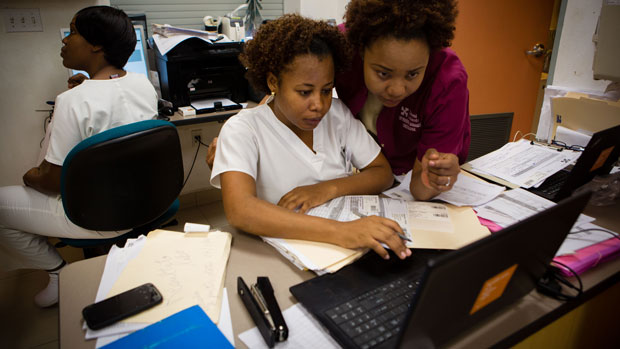
Equipment for Clinicians
Your $1,500 investment could provide a laptop and related equipment for a clinician to record critical patient data using Zanmi Lasante’s electronic medical records system.
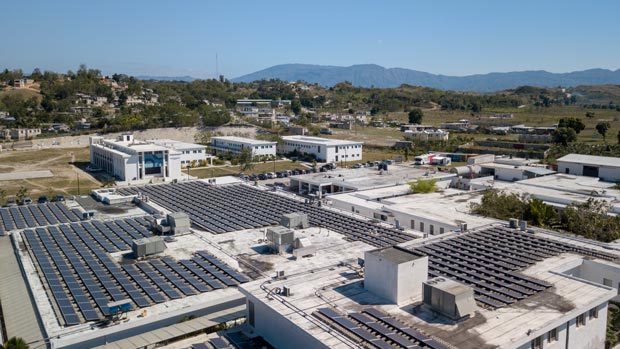
Maintain solar power network
Your $142,000 investment could help maintain University Hospital’s solar power network—the largest in the Caribbean—for five years.
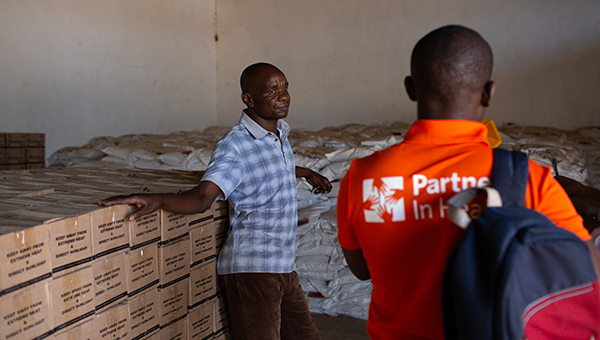
Construction of a Distribution Center
Your $300,000 investment could fund construction of a temporary distribution center, enabling a continued flow of supplies and medicines during security crises.
A Case Study: Cholera

Cholera arrived in Haiti in October 2010 with UN peacekeepers and contaminated a major river frequently used by residents for cleaning and drinking water, resulting in a rapid spread of the deadly disease.
In response, Zanmi Lasante established 12 cholera treatment centers for infected patients. Staff disinfected homes; distributed hygiene kits, including soap and water purification tablets; and trained 3,300 community health workers and teachers on how to identify symptoms and triage suspected cases, as well as how to communicate and encourage improved hygiene. Zanmi Lasante also led the construction or rehabilitation of dozens of latrines and public water sources.
In 2012, in partnership with the Haitian Ministry of Health and the nonprofit organization GHESKIO, Zanmi Lasante pioneered Haiti’s first oral cholera vaccine campaign which inoculated 300,000 people, and in the last seven years has treated 145,000 cholera patients with a case fatality ratio of less than 1%.
